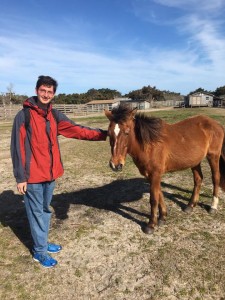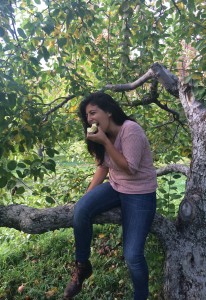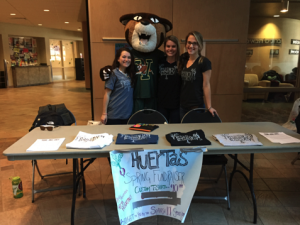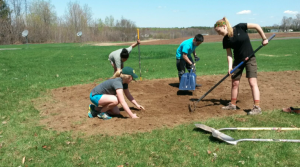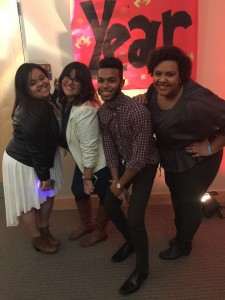As the Health and Nutrition Intern for Bridges to Health, my involvement with the farmworker population is slightly different. I am developing 8 week long nutrition education programs for two different women that I visit every week and I will then plant a huerta with them later on in the season. I began my home visits about 5 weeks ago by asking a set of preliminary questions to gauge the interest of each woman so that our visits could be personalized. The topics that I?m covering include general nutrition, budgeting, food safety, recipe utilization, and exercise. How I present the material and the discussions that arise depend greatly on who I am working with.
Lorena is about 50 years old and is from Michoacan, Mexico. She and her family have status as permanent residents which affords them much more mobility and freedom. Her daughter, Lena, is about 20 and is currently pregnant and expecting a son in June. Lena is enrolled in an eight week long English language course at St. Michaels College and she and her mother are doing a homestay in Burlington for the duration of the class. The homestay has presented some very interesting situations for the women in terms of their diets because they are being exposed to certain products, like tofurkey and almond milk, which they likely never would have encountered otherwise.
Regina is about to turn 20 and has a toddler named Natalia. She lives with 3 men, including Regina’s partner, and is from Chiapas, Mexico. Regina does not have status as a permanent resident and is therefore very limited in terms of mobility. She relies on the farm owner?s wife to take her grocery shopping every 15 days and seldom leaves otherwise. This limits the amount of fresh produce that she’s willing to buy because it doesn’t last very long. There is also a person who routinely takes trips to Boston to stock up on Mexican groceries and then goes door to door selling things to farm workers. Regina likes it because she can get very specific things that she wants, but they come at a relatively high price.
I am halfway through my visits so far, and have been working on laying a foundation of what I consider general nutrition. One activity that was particularly impactful for both Lorena and Regina was one that I did to help them visualize sugar content of certain drinks. A common drink for them is Gatorade, which has 14 g of sugar in each 8 oz serving. 4 grams of sugar is equal to one teaspoon of sugar, so to help them visualize just how sugary drinks like Gatorade are, I brought a teaspoon asked them to measure out 3 and ½ tsp of white sugar. Seeing that much sugar at once is much more powerful than simply reading a label and both women were very surprised. I then reminded them that each bottle contains 2.5 servings, so really there are almost 9 tsp of sugar in each bottle. They each said that it would be a long time before they?d drink another soda or sports drink.
I have learned so much from these two women and I am only half way through my visits. I have learned to be very aware of any assumptions that I may be making without realizing, such as literacy level or familiarity with what I take for granted as basic knowledge. I feel very successful when I can fill in some of the cultural gaps that exist in their lives. For example, Lorena is concerned that Lena doesn’t drink enough water and was very surprised when I told her that Lena can be drinking the tap water from the sinks and water fountains. From a cultural standpoint, it makes sense that Mexican women would feel hesitation about tap water, especially when pregnant, because in Mexico it is a major concern.
I have also become very aware of my own privilege and how it impacts me and my decision making every day. As a white U.S. citizen who speaks English fluently, I am at an incredible advantage in so many more ways than I ever realized. Even the ability to access a grocery store any time, any day is a luxury because it means that I cook exactly what I want, whenever I want.
For the next four weeks, I am excited to delve more deeply into nutrition with Regina and Lorena and to help them identify sustainable ways to enjoy healthier food while maybe even saving money. I am very much looking forward to incorporating the Huertas resources and planting a garden with both Lorena and Regina this Spring. The Huertas project is so deeply important for these families because not only do they benefit from fresh produce, but it’s also an incredible opportunity to reconnect with their Mexican roots and even with other farmworker families here in Vermont
